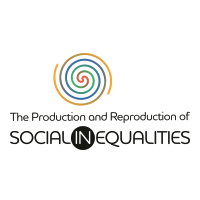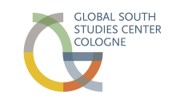
Debates on “Trafficking in Persons and Slavery” in Cameroon
Project members:
- Prof. Dr. Michaela Pelican, University of Cologne, Principal Investigator
- Dr. Jonathan Ngeh, University of Cologne, Senior Researcher
This project studies public and legal debates about “trafficking in persons and slavery” in Cameroon and how they relate to forms of exploitation and social inequality. Cameroon is both a source and a destination of children and adults, particularly women, being exposed to exploitative labor on a national and transnational scale. These arrangements are rooted in long-standing cultural practices (Lawrence & Roberts 2012). “Trafficking in persons” is a legal concept framed by national and international policymakers and has been applied in different parts of the world, including Africa (Adepoju 2005). It refers to the recruitment and transfer of persons by means of coercion or deception for the purpose of exploitation. The legislative process in Cameroon has entailed diverse conceptual and linguistic convolutions due to the country’s bilingual (French and English) and bijural system.
As preliminary research suggests, the translation process (from “trafficking” to “traite” to “slavery”) has resulted in the use of the term “slavery” in the English version of the country’s current anti-trafficking law. The notion of “trafficking in persons and slavery” was first introduced in 2005 with a focus on the possible exploitation and abuse of children sent from rural areas to stay with relatives in the city. In 2011, the legislation was adjusted to include adults, as women and youths are also exposed to the dangers of abusive work arrangements, particularly in a transnational context. Recently, the case of Cameroonian women exploited as domestic workers in the Gulf States, who publicized their experiences of physical and sexual abuse, has refueled debates. Policymakers and legislators are very aware of close links between poverty, social inequality, and high-risk migration, and have been working on an integrated policy framework. Yet the current legislation does not provide the necessary instruments to assist the victims of human trafficking, but rather contributes to their further exploitation, driving them into new abusive arrangements.
This project will ask: How is the concept of “trafficking in persons and slavery” understood and used by different parties in Cameroon, including policymakers, legislators, civil society organizations, journalists, and individuals with trafficking experience? How does the current policy framework contribute to questioning or reinforcing existing structures of exploitation along the lines of gender and generation? These questions will be addressed via ethnographic fieldwork, including participant observation and qualitative interviews with governmental/non-governmental actors and with women migrants in Cameroon and Kuwait. The research will also draw on the analyses of legal and policy texts so as to reconstruct the legislative process.
Learn more...


Project Activities

Project: "Development" fostering social inequality?
This Research Unit is funded by the Volkswagen Foundation


